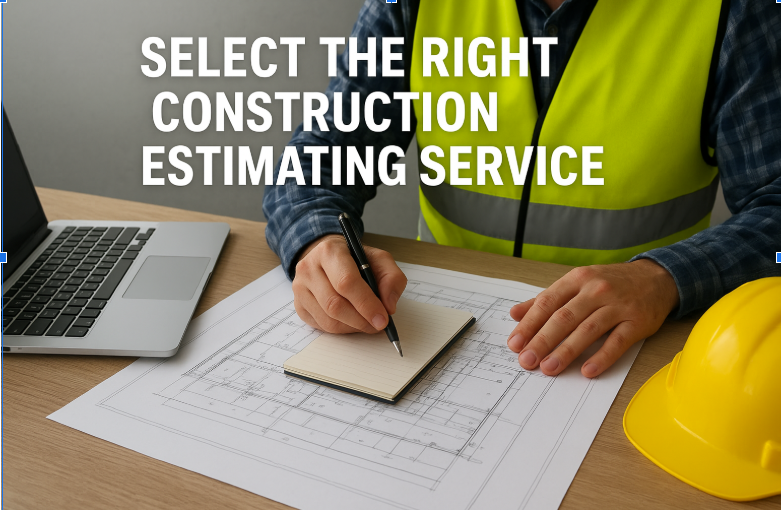
When planning a small residential construction project, such as building an extension, remodeling a kitchen, or renovating a basement, accuracy in budgeting is essential. Even the smallest financial miscalculation can lead to project delays or cost overruns. That’s why many homeowners turn to cost estimation services to help predict expenses and manage financial planning. However, with numerous options available, selecting the right estimating service can be a challenging task. Here’s a step-by-step guide to help you make an informed choice.
1. Understand What You Need
Before reaching out to any estimating service, clearly define the scope of your project. Small residential projects vary widely from minor upgrades to more complex remodels. Start by answering a few essential questions:
- What type of work is being done (e.g., electrical, plumbing, structural)?
- Are you working with a contractor, or is it a self-managed project?
- What is your estimated budget, and what is your desired timeline?
By outlining these factors, you’ll have a clearer idea of what kind of estimating support is best suited for your needs.
2. Research the Experience and Expertise of the Estimator
Experience plays a significant role in the accuracy of a cost estimate. Look for a service provider that specializes in small-scale residential projects rather than large commercial developments. Residential projects have unique considerations—such as finishes, custom work, and local material availability—that a commercial estimator might overlook.
Ask potential estimators about their previous projects. Reviewing sample estimates or client testimonials can give insight into their attention to detail, accuracy, and reliability.
3. Check for Use of Modern Estimating Tools and Software
Today’s construction industry benefits greatly from digital tools that enhance precision and efficiency. Reliable estimators use advanced software to calculate quantities, material costs, and labor requirements. These tools reduce the risk of human error and provide clear, itemized breakdowns of every cost element.
When speaking to an estimating firm, ask about the software they use and whether their reports include cost tracking, labor analysis, and scope summaries.
4. Ensure Transparency in Pricing and Deliverables
A good construction estimation service should have a transparent pricing structure. Avoid providers that give vague quotes or charge hidden fees. Ask for a clear explanation of what’s included in the estimate—such as materials, labor, overhead, and profit margins.
Also, confirm the format of the final report. A professional estimate should include a detailed list of costs, unit measurements, and a breakdown of project phases.
5. Evaluate Communication and Responsiveness
Communication is key when dealing with complex projects, even smaller residential ones. The right estimator will take time to explain their process and answer your questions. If you find that communication is slow or unclear, it could be a red flag.
Responsiveness also reflects professionalism. A company that responds promptly to your inquiries and provides clear documentation demonstrates commitment and reliability.
6. Ask About Turnaround Time
Residential projects often operate under tight schedules. Delays in receiving cost estimates can delay contractor bids and permit approvals. Therefore, it’s essential to confirm turnaround times before hiring a service.
A good estimator will provide a realistic timeline and adhere to it. However, remember that rushing the process can compromise accuracy, so balance speed with precision.
7. Compare Multiple Estimates Before Deciding
Don’t settle for the first estimate you receive. Collecting two or three estimates allows you to compare not only pricing but also the quality of work and level of detail. The lowest price doesn’t always mean the best value—accuracy, clarity, and reliability should guide your decision.
When comparing, check how thoroughly each estimate explains costs and whether any items appear missing or vague.
8. Consider Long-Term Collaboration
If you plan to undertake multiple renovation projects in the future, establishing a long-term relationship with an estimating service can save you both time and money. Familiarity with your property and preferences can lead to more accurate and efficient estimates in the future.
Working consistently with one trusted partner also fosters better communication and smoother collaboration.
9. Verify Credentials and References
A reputable estimating firm will have verifiable credentials, certifications, or memberships in professional associations. Don’t hesitate to ask for references from previous clients, particularly those who had similar residential projects. Speaking directly with former clients can provide honest insights into the estimator’s reliability and accuracy.
10. Balance Quality with Cost
While affordability is a valid concern, it shouldn’t come at the expense of quality. An inaccurate estimate can cost far more in unexpected expenses later. Always prioritize accuracy, detail, and professionalism over simply choosing the cheapest option.
Final Thoughts
Selecting the ideal construction estimating service for a small residential project necessitates careful consideration of experience, communication, tools, and transparency. The right partner will provide peace of mind, enabling you to plan your project with confidence and efficiency.
